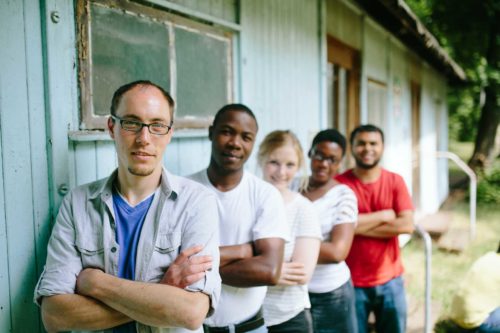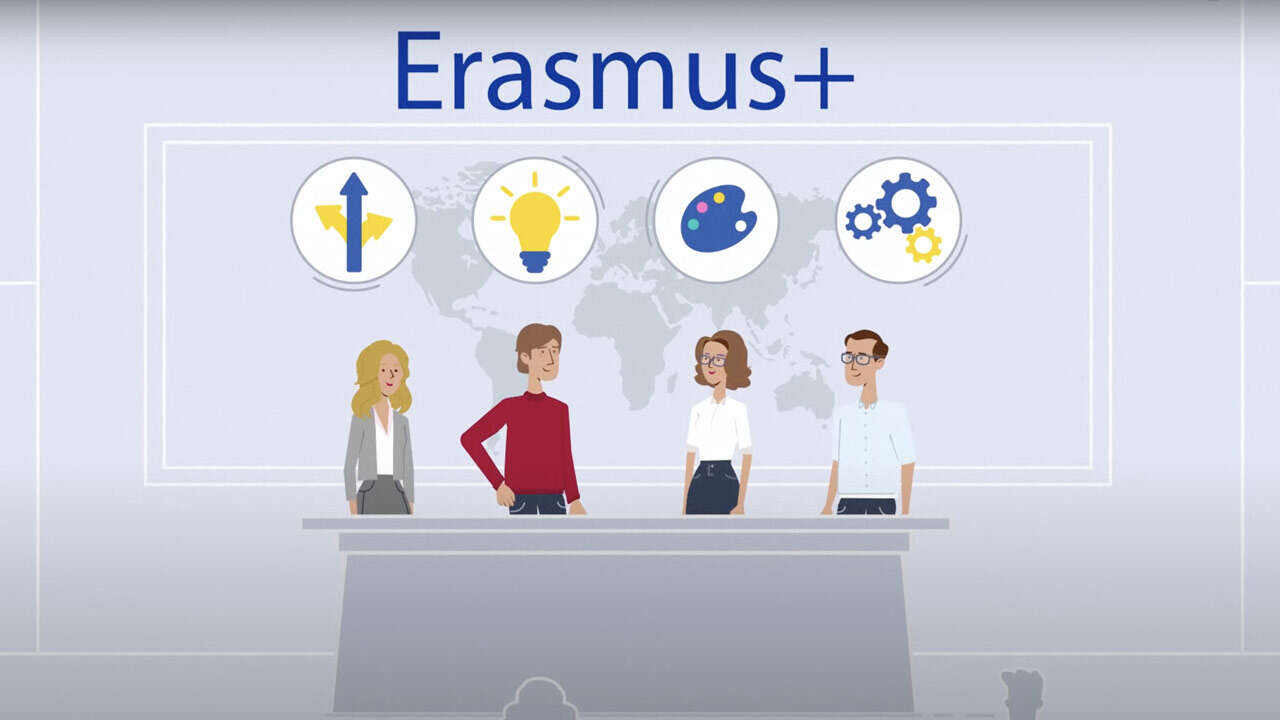Erasmus+
Information for British citizens coming to Friedensau:
British citizens who wish to move to Germany after a “crash-out” Brexit would be allowed to enter without a visa, live and work for a maximum period of 3 months. Within this period they would have to apply for a residence and work permit with the relevant foreigners authority. Here you can find further information.
Student Mobility
Outgoing
- Credit Transfer - ECTS
- Learning Agreement
- Learning Agreement Guidelines
Incoming
- Module Handbooks
programmes taught in German:
B.A. Social Work
B.A. Theology
M.A. Counseling
M.A. Music Therapy
M.A. Theology
programmes taught in English:
M.A. International Social Sciences
M.A. Theological Studies
- Module Handbooks
- Confirmation of Stay
- Information on:
Finances
Emergency telephone numbers
General information
Please contact the Admissions' Office for all matters concerning Visa, Health Insurance and Residence Registration.
Internships
Friedensau Experience Reports
 My Internship with ADRA Europe in Brussels by Abla Essenam Odette Apedoh
My Internship with ADRA Europe in Brussels by Abla Essenam Odette Apedoh
Based on my studies in in International Social Sciences, I obtained a six-month internship with ADRA EUROPE, the European Regional Office, located in Brussels, Belgium.
ADRA EUROPE is a faith based organization. It is also a Regional Office of the ADRA network. The network constitutes of a global humanitarian agency which delivers relief and development to individuals in more than 118 countries. The ADRA EUROPE office supports 30 ADRA European offices in developing their capacity through partnership, funding and training, to promote the well-being of the communities in whom they work. It also serves as a point of contact between government institutions, such as the European Commission and the ADRA offices within Europe.
During my time at this institution, I was able to contribute to discussions related to development and social justice and to assist the organization through research in their initiative to better their emergency response worldwide. I also assisted individuals such as my supervisor and other colleagues in their day-to-day activities, such as reporting and organizing seminars.
Indeed, during my time with ADRA EUROPE, I learned a lot, particularly about governance, cooperation among development institutions, advocacy for social justice, emergency humanitarian response, trends in the NGO sector, the impact of civil society, leadership, fundraising or positive organizational culture.
I had a really good learning experience that exposed me to a new world of work, helping me to relate the theoretical themes to the practical situation on the ground, and made me discover my hidden potential, which I will further develop for my future carrier.
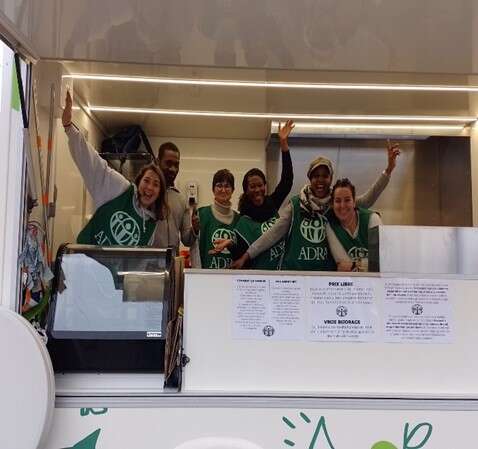
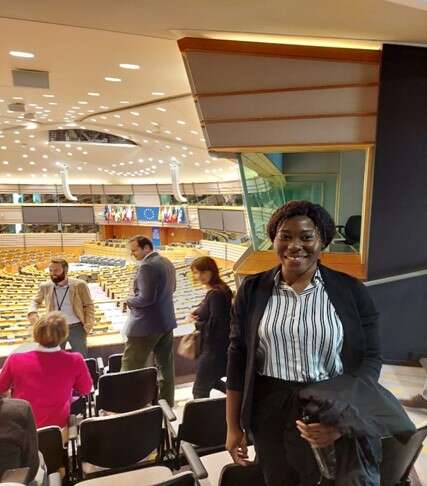
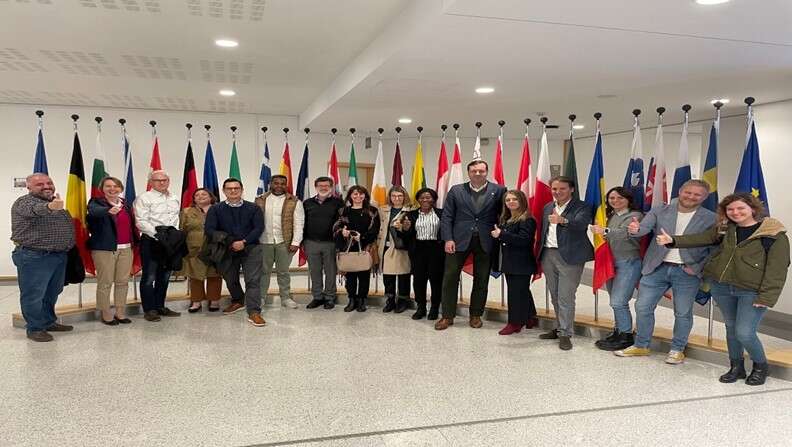
 My Internship at ADRA Romania by Joyce Dzonyrah
My Internship at ADRA Romania by Joyce Dzonyrah
MY INTERNSHIP AT ADRA ROMANIA BY JOYCE DZONYRAH
I am Joyce Dzonyrah and studying Master of Arts in International Social Sciences at Friedensau Adventist University. I had a 3-month internship with ADRA Romania, particularly with their CASA ADRA project which shelters victims of domestic violence. I started from the 1st of April to the 29th of June 2023. This internship was fully funded by Erasmus.
This step came up when there was an opening position for an internship at ADRA Romania which my university publicized. I therefore showed interest in it and that is where the process started. This process was very smooth due to the immense support from all the stakeholders involved which included my university, the ADRA Romania institution, and Erasmus.
I contacted my supervisor from the host institution (ADRA Romania) which initiated communication even before moving to the host city. This communication with the supervisor helped in developing a rapport that extended further to the Human Resource Person of the institution. I got to learn more about the institution before getting there so I basically knew the nature of the operations of the project. They even helped in securing accommodation for me which took a huge burden I was worried about. I also started research online about Romania’s cities, security, and other things to note as a foreigner. One of my worries was about the Ukraine-Russia war as Romania was close to the situation so I kind of felt insecure. However, further talks with the Human Resources person and the supervisor removed this worry and fear.
ADRA Romania, the Adventist Agency for Development, Restoration, and Aid, has been actively engaged in the country since 1990, undertaking various development initiatives aimed at benefiting the entire population, irrespective of their religious affiliation, ethnic origin, or gender. ADRA Romania directs its efforts towards five primary areas, namely economic growth, primary healthcare, disaster relief, basic education, and the prevention of family violence (ADRA Romania, 2023).
The "Emergency Reception Centre for Victims of Family Violence - CASA ADRA House" of ADRA Romania where I was placed has been in operation since 2009. This project endeavors to facilitate the reintegration of domestic violence victims into society through the provision of various forms of assistance, including shelter, social counseling, psychological counseling, emergency medical aid, food, and referrals to legal professionals.
I actively participated in multiple responsibilities associated with the CASA ADRA house. These tasks encompassed conducting preliminary assessments of survivors, interviewing individuals, engaging in the initial evaluation process for new shelter recipients, observing and acquiring knowledge about the assessment methods utilized to ascertain the distinct needs and support prerequisites of each individual.
I was engaged in collaborative efforts with the social worker at the shelter, focusing on a range of activities designed to empower and provide assistance to the residents. This involvement includes active participation in group discussions, workshops, and support sessions specifically tailored for victims of domestic violence. Additionally, I contributed to the creation and execution of social programs and initiatives.
I also participated in discussions with the psychologist at the center in order to acquire a deeper understanding of the distinct dimensions of domestic violence and its psychological ramifications on individuals affected by it. Additionally, I sought to familiarise myself with the psychological assistance and counseling services provided to survivors.
I contributed to the strategic development and implementation of leisure pursuits for the inhabitants of the shelter, specifically focusing on the mothers and children residing within its premises. I strategically devised and executed various recreational activities, including games, art projects, and other interactive endeavors, with the aim of cultivating a favorable and pleasurable environment. I also engaged in activities such as accompanying victims on walks and visits to different locations, offering support and companionship, and taking part in recreational outings and educational excursions.
My primary objective encompassed the acquisition of knowledge pertaining to the legal framework surrounding domestic violence in Romania, as well as a comprehensive understanding of the diverse manifestations of domestic violence and its associated consequences. Additionally, I aimed to familiarise myself with the distinctive characteristics and requirements of individuals who have experienced domestic violence.
I provided assistance to the supervisor in the preparation of the "Child Flight" fundraising campaign for the shelter via assisting in the creation of promotional materials aimed at attracting potential sponsors and partners, engaging in proposal writing, and actively participating in discussions to identify impactful language and storytelling techniques for effectively conveying the narratives of ADRA House. This involved utilizing my social media platforms to generate public consciousness regarding this event. This event was aimed at raising funds for the CASA ADRA House.
I actively engaged in a protracted endeavor by making substantial contributions to the conclusive narrative report of a year-long initiative centered on refugees. Within this project, CASA ADRA focused on addressing instances of gender-based violence and provided support in terms of data collection, analysis, and report composition pertaining to the project's activities and outcomes.
This was a better way of applying the classroom work to the field and I realized how extensive project management is and it inculcates the habit of learning across various fields relevant to the project. I am really grateful to Erasmus for sponsoring this goal, helping me to fit well in the international professional and humanitarian field, and also aiding the process for the start of my thesis. This was a great opportunity!
Reference
About ADRA Romania, 2023, Retrieved from https://adra.ro/cine-suntem
 My Internship at ADRA Bosnia by Solange Tangie
My Internship at ADRA Bosnia by Solange Tangie
Hello, my name is Solange and I am a student in the master's program of International Social Science at Friedensau Adventist University, Germany. During my last semester, in which I did an internship as part of my study programme, the covid pandemic disturbed my course. I had to wait for a while and was searching for where to do my internship. I started to feel a bit confused and undecided about my future and overwhelmed by the idea of completing my study and start looking for a job. It was during this period that my lecturer sent an email about an internship opportunity with ADRA Bosnia, precisely in Banja Luka, that can be sponsored by Erasmus.
ADRA Bosnia empowers those who are physically impaired and unemployed by training them and giving them the opportunity to be integrated into the society while improving their livelihood.
During my internship at ADRA Bosnia in Banja Luka, I performed tasks such as collecting data and helping women in the programme to produce goods to sell for earning their livelihood. I worked together with other institutions in the wide network of ADRA Bosnia like “Friendship of Mozaik”. I helped in preparing ingredients to cook food for the elderly and less privileged ones. I also helped in sorting out donations to be distributed to them on a specific day.
Overall, my internship in Banja Luka was by far the most challenging experience of my life, but also the most rewarding which I am grateful for. Within the internship period, I completed all the work tasks assigned to me.
ADRA Banja Luka has a very small office. One of the aspects I liked the most from this experience was the familiar and friendly atmosphere I found every day at work. All my colleagues always cared about the well-being of everyone at the office, their workload, and support, I had never felt I was asking "wrong questions" or that I was lacking support and guidance. My supervisor always took her time to explain to me every step of my tasks and their contexts so that I could always have a general understanding of what I was doing. Furthermore, everyone always tried to make sure I was getting the best out of this experience and know the local contexts and especially its traditional food. Interestingly, everyone was a food lover at the office, and they could not allow me to leave without eating their traditional meal “Cevapi”.
Finally, my experience as an Eramsus intern and especially at ADRA Banja Luka was extremely positive, not only for the professional skills I gained but most importantly for my personal growth. I went through these months enhancing of interpersonal relations skills, self-awareness, and was able to reflect in depth on my future career path. I consider myself very lucky to have had the opportunity to take part in this project at Banja Luka with women with disabilities and unemployment. A big thank you to Friedensau that provided me this opportunity, to the European Commission for providing the funds and to ADRA Banja Luka to host me as part of their team.
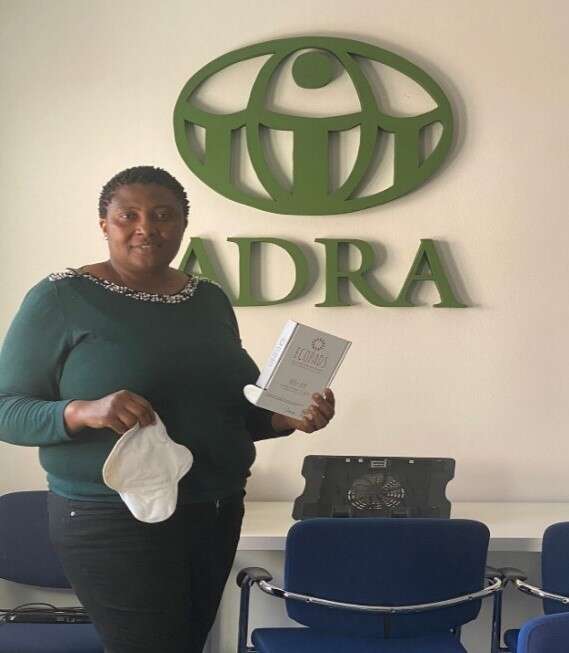
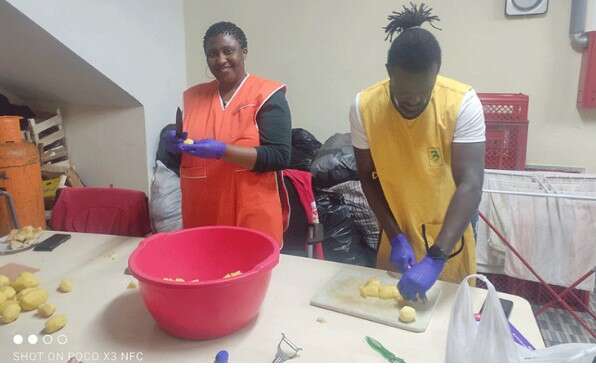
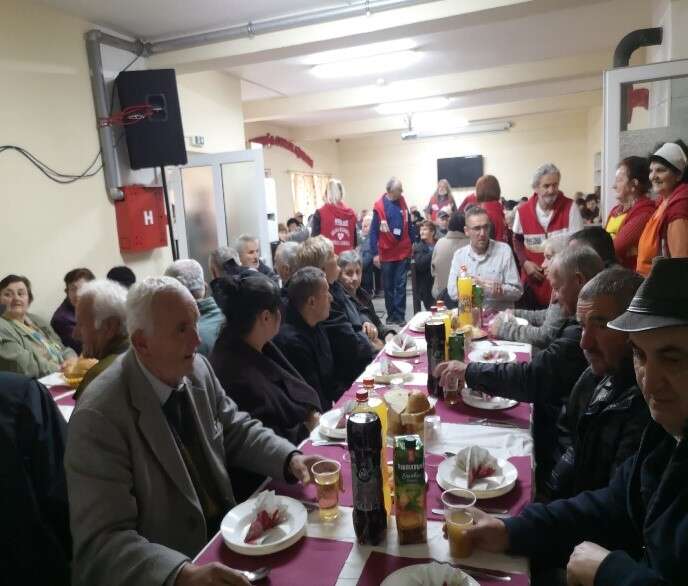
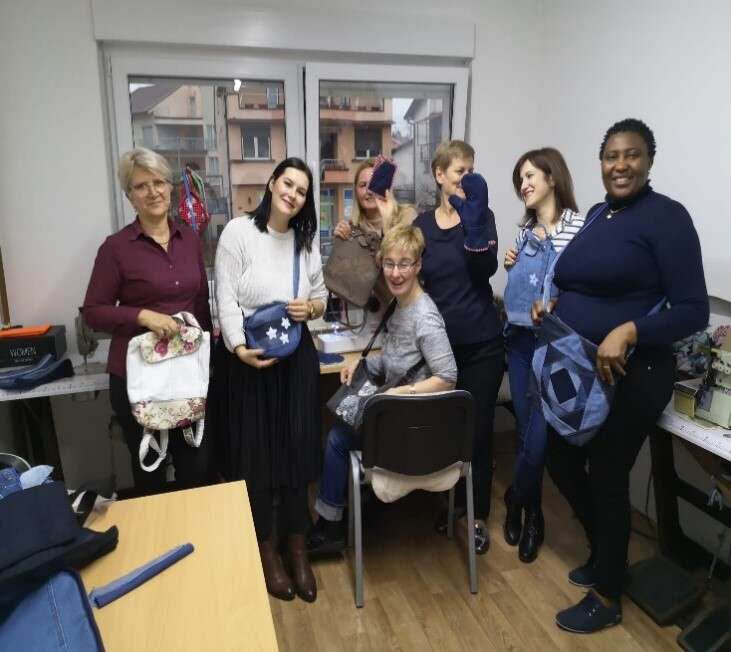
 My Internship at ADRA Albania by Duke Adotey Pappoe
My Internship at ADRA Albania by Duke Adotey Pappoe
My internship at the Adventist Relief Agency (ADRA), Albania, from April 2021 to January 2022 exposed me to many things in life which I had no idea of and thanks to Erasmus for contributing to my easy stay. ADRA is an International Non-Governmental Organization that is involved in the management and provision of disaster relief materials and engages in the provision of social intervention programs in places where these humanitarian services are needed.
The main duties that I was given to perform during my internship time in the agency were in the area of administration, project proposal and report writing. I worked on writing three project proposals such as the Prevention of Sexual Exploitation Abuse (PSEA) project which was sponsored by ADRA International. The other two projects were: Every child Everywhere In school II and the Covid Awareness project. I was also working in all the departments of the agency from time to time to acquaint myself with their work.
One topic that was new to me was the existence of poverty in Europe even though the continent is perceived as economically developed. In my interactions and observations of the people in the country, many stories and issues on economic hardship which are similar to that of Africa were noted, but just like many people like me from the global south, I had the misconception that every part of Europe is economically okay. I meet friends who worked for 12 hours a day for 7 days a week and earned 300 Euros for the month which got me surprised. This brought me back to the topic we always discuss in class and the question of “what constitutes development?” In seeking answers with respect to Albania made me realize that the quality of life, cultural considerations and many other things explain how developed a society is.
My internship lasted for 10 months and I enjoyed every aspect of it and wished it lasted more. I felt there were more things I needed to learn which time and the codvid pandaemic did not allow me to learn. The covid pandemic prevented me to go out more often to interact with project beneficiaries to have the feeling of how the agency`s work impacts their lives and the challenges faced. Also, going out more often could have made me easily learn the Shqip language which was the official language of Albania. Furthermore, the agency has many work activities that I wished to have participated in but I could not due to the limited time I had to spend on my internship. Even though I still have the opportunity to do voluntary work with them online, I would have loved to be there physically to do some of their fieldwork.
Finally, the International Social Science (ISS) study program at Friedensau Adventist University was a good foundation for me to understand the work given to me during my internship. There were many theories that were discussed in class that were easily available to apply during my internship with the agency. I wondered and asked myself if the activities I encountered during my work as an intern would have been easily understood by me without my foundation knowledge in ISS. I came to the conclusion that for an intern to largely understand and analyze works given to him or her during internship, he or she should finish classroom lectures first. Also, having your internship with an organization that mainly deals with social issues widens your knowledge in social sciences better than an organization that only partly does social projects as part of its work.
I will conclude by expressing my appreciation to the Erasmus program for the funds provided for my stay. The funds provided were able to cater for my living expenses and made it easier for me to be accepted my receiving organization as an intern.
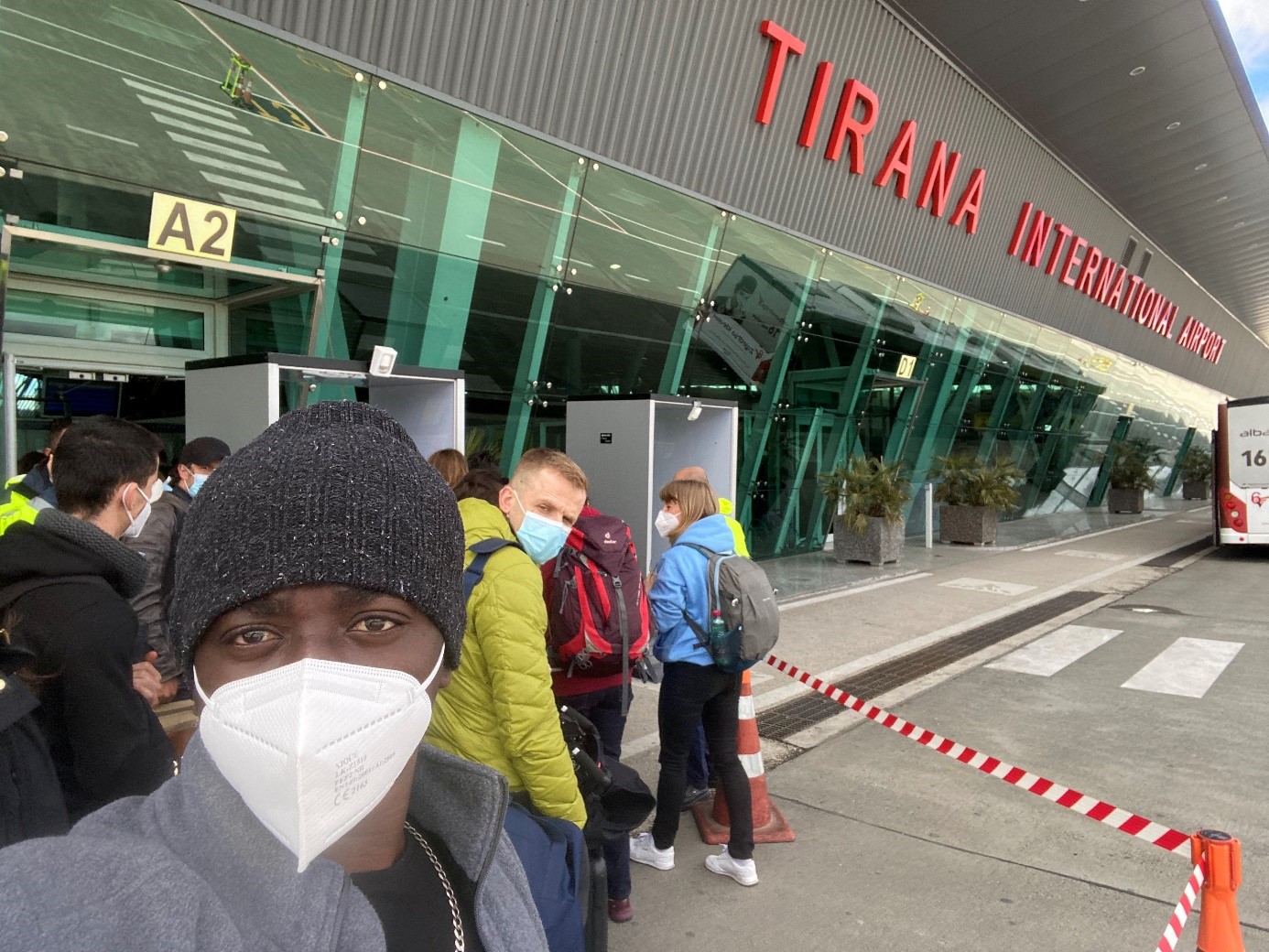
 Practical Training Experience Report Bosnia by Prince Agyemang-Badu
Practical Training Experience Report Bosnia by Prince Agyemang-Badu
My name is Prince Agyemang-Badu and I had 6-month practical training with Adventist Development Relief and Agency in Bosnia and Herzegovina between 01.10.2020 to 31.03.2021. The program was fully sponsored by Erasmus.
Before the practical training, I duly conducted a considerable investment of research, reflections, and consultations on the impacts of the training and the situation on the grounds. Influences relating to my future carrier perspectives, development of my interests, the connection between the training institution and my studies, my financial capabilities or sponsorships, language, security, corona situation, and other factors contributed to choosing the training body and the country.
Adventist Development Relief and Agency (ADRA) is a global Faith-Based Organization founded and sponsored by the Seventh-Day Adventist Church. ADRA seeks to deliver relief and development by structuring relevant programs and building capacity for sustainable change to millions of lives in about 118 countries across the globe. ADRA practices decentralization and operates by partnering with local communities, organizations, and various governments; the approach allows effective and quick response on the ground. Among the numerous offices across the globe is ADRA Bosnia. ADRA Bosnia (BIH) believes and works towards “Pravda, Suosjećanje i Ljubav” which means Justice, Love, and Compassion for all humanities regardless of their gender, ethnicity, political affiliation, or religious associations. ADRA BiH operates in two main offices in the country, the Sarajevo and the Banja Luka offices. ADRA BiH has structured, organized, and implemented numerous projects through the years, mainly in Sarajevo and Banja Luka.
I worked with the office in Sarajevo, the capital of Bosnia and Herzegovina. Sarajevo has become a transit point on the western Balkans route. Unregulated migrants use Sarajevo as a rest stop in their journey to regroup, refill their energy, sort for adequate resources being money, friends, and smugglers to continue their journey. With the numbers of unregulated migrants increasing in Sarajevo, the United Nations High Commissioner for Refugees (UNHCR) and the European Union, through International Organization for migration, have created a temporal rest stop for migrants known as the Blažuj temporal acceptance camp. At this camp, ADRA BiH has established a center to train, psych, and educate the migrants. The primary language used during the traineeship was English, but Bosnia and German were used as second language in some cases.
I was assigned many tasks at the migration-center which included the following
- Served as a project assistant at the center. I was in charge in the absence of the Program coordinator.
- Organized and taught German as a Foreign Language.
- Facilitated and trained migrants with computer skills (Microsoft applications).
- Represented the organization during the International Organizational of Migration (IOM) usual meetings.
- Provided First Aid Training for the migrants.
- Assisted the Facilitator in psychosocial support activities.
- Wrote evaluations and reports relating to the Migrant center project.
- Assisted in general activities at the center.
The Erasmus-sponsored 6-month practical training with ADRA Bosnia is one of the best things that has happened to me in my academic career. I was fortunate to have an outstanding team leader and teammates during the training. The team and my supervisor made all efforts in their power to make the training as interesting, smooth, extensive, and successful for me. If I have the opportunity, I will work with the organisation again.
The application process with Erasmus was quick, smooth, and less tedious due to the assistance from Friedensau. I worked at a migrant camp, where I got to know the true stories behind the motivation of the movement of unregulated migrant to the European countries even during a world crisis, the COVID-19 pandemic. I am more interested in that, and it has motivated me to write my masters’ thesis on the topic. One of the greatest opportunities every student could get is to have an opportunity to travel with the sponsorship of the Erasmus program. You will realise that there is life and cultures beyond your home countries and even at your sending institution. You will have the opportunity to build networks that will help you in your academic and future job-seeking endeavours. Experiencing what you have been taught in the classroom on the grounds is the best feeling ever every student could imagine. But before you sign up, make sure to read about the countries, especially their cultures and visa applications. Do not miss such an excellent opportunity to explore!
Thanks to the training, I believe my chances of getting a new or better job have increased. I have a clearer idea about my professional career aspirations and goals. Also, I am more capable of taking on tasks with high responsibility. Finally, after the traineeship, I would like to work in an international context. 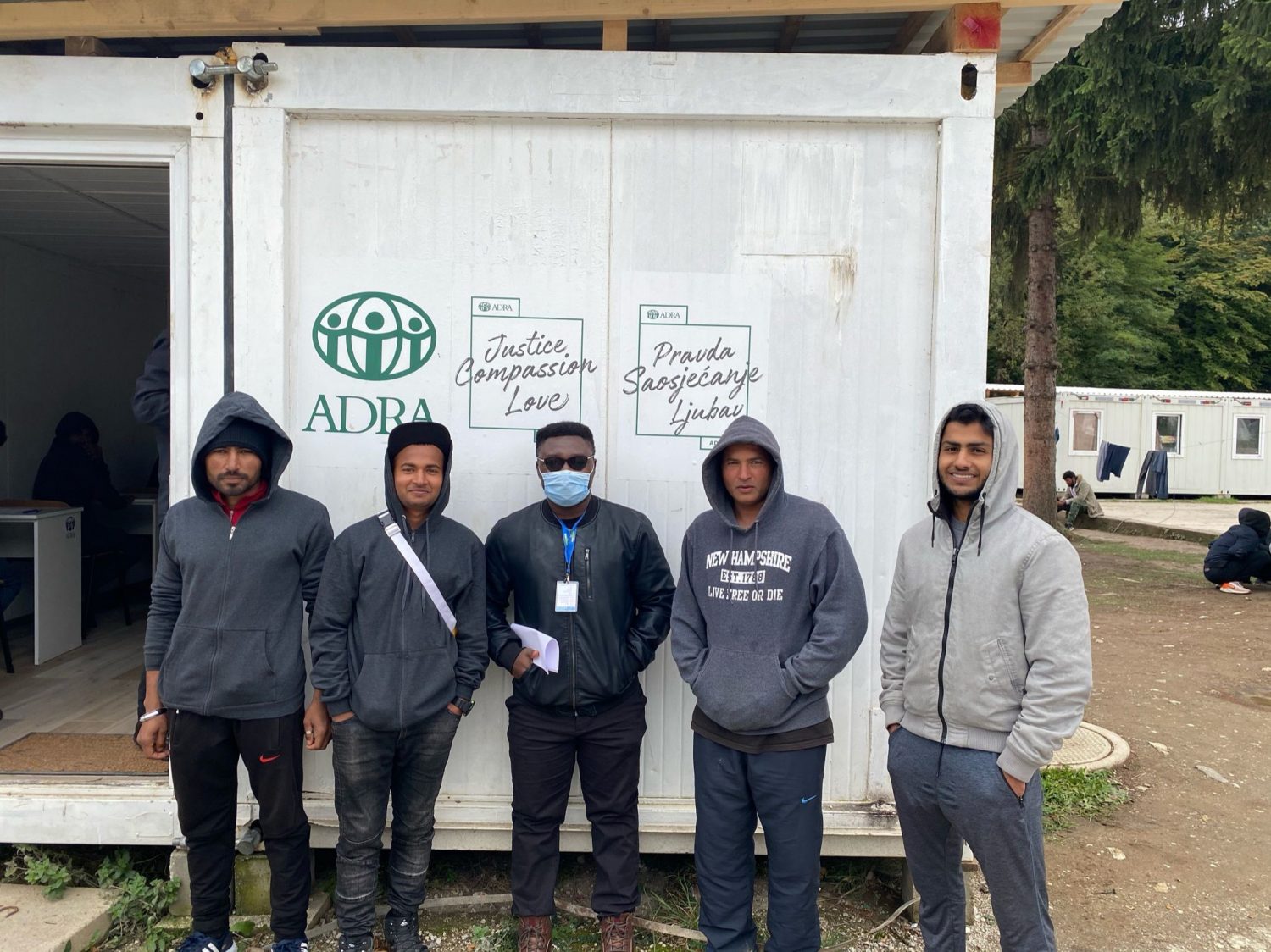
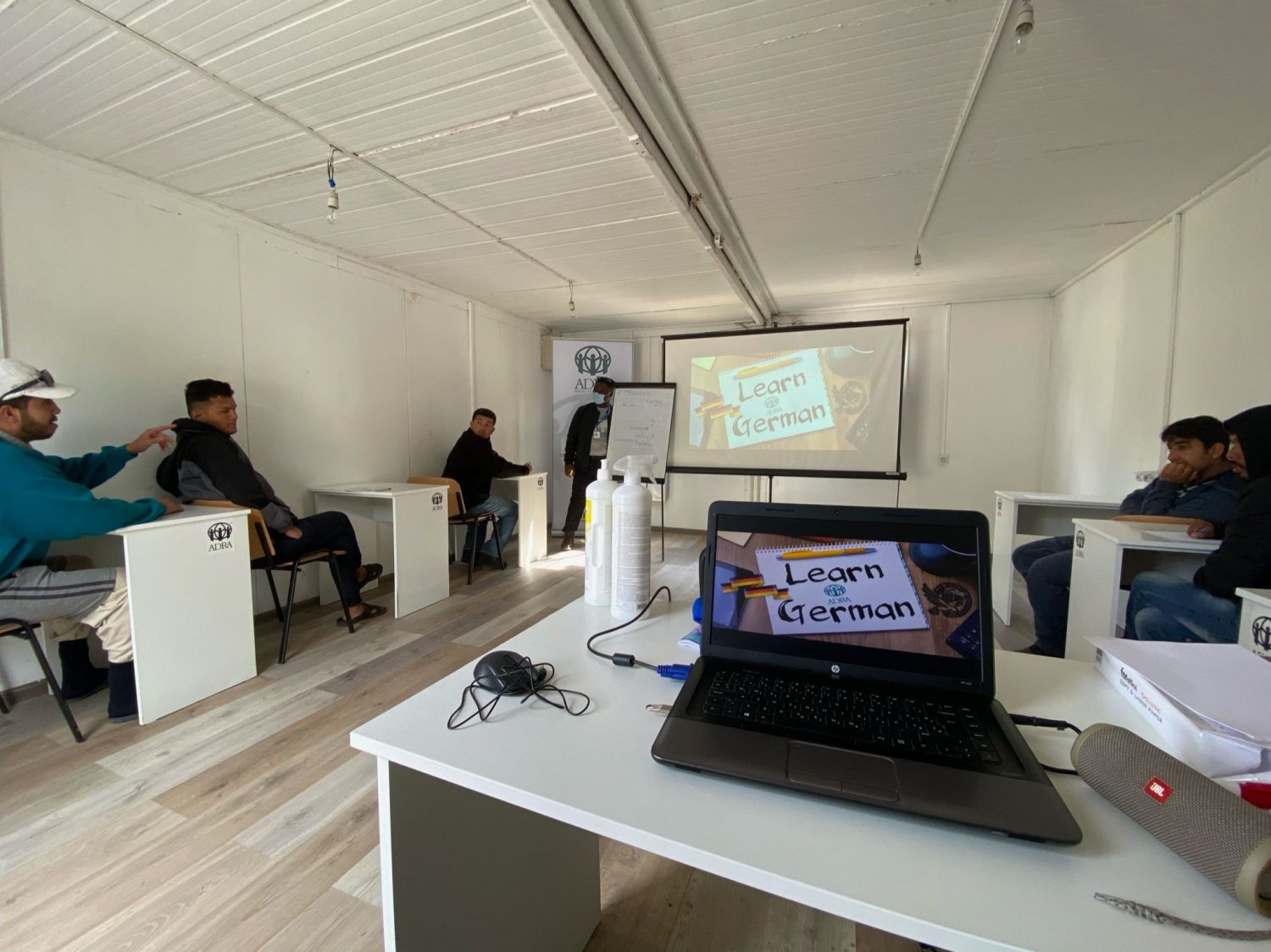
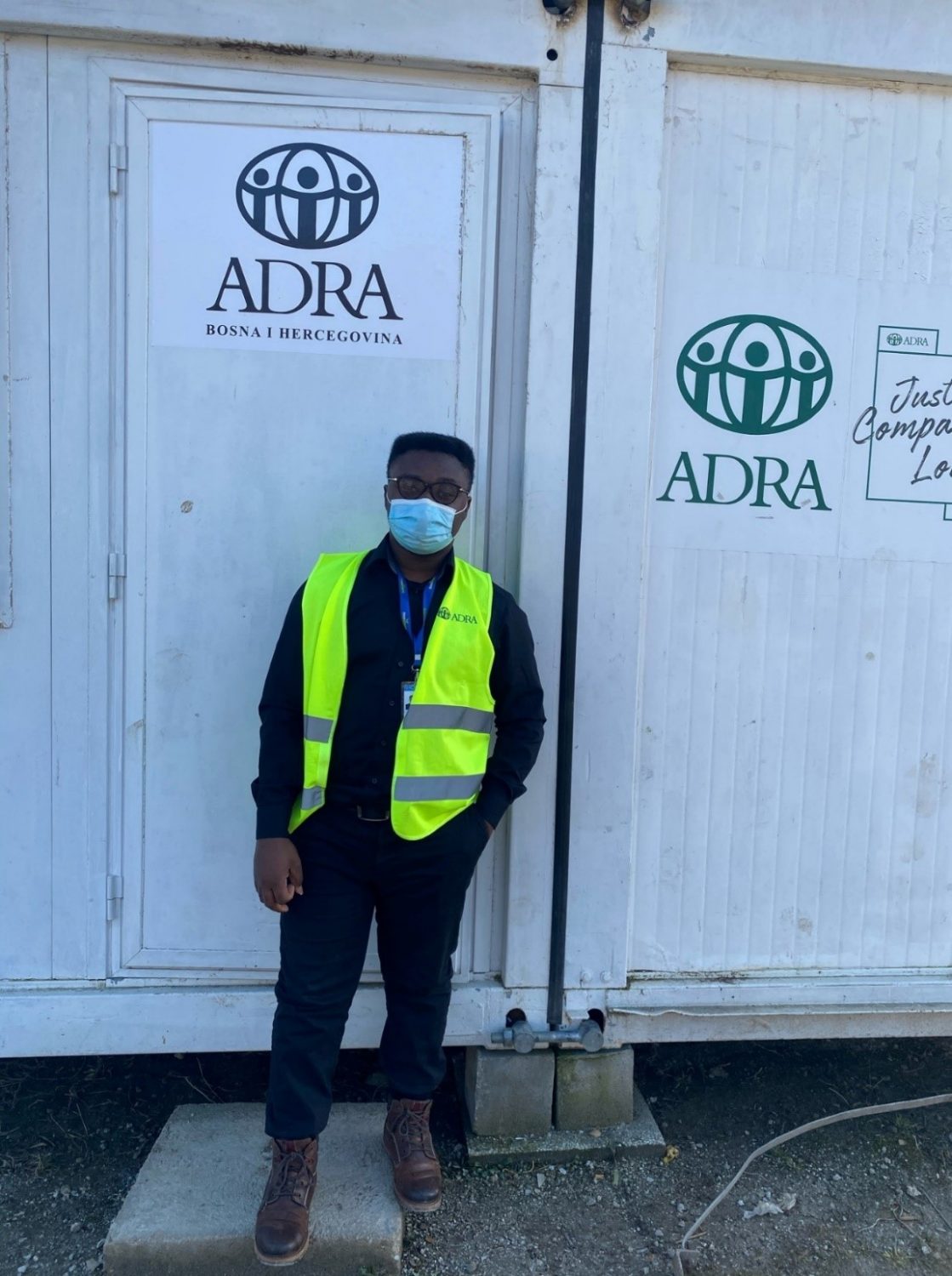
 Practical Training Experience Report Ireland Noémie Agbossassa
Practical Training Experience Report Ireland Noémie Agbossassa
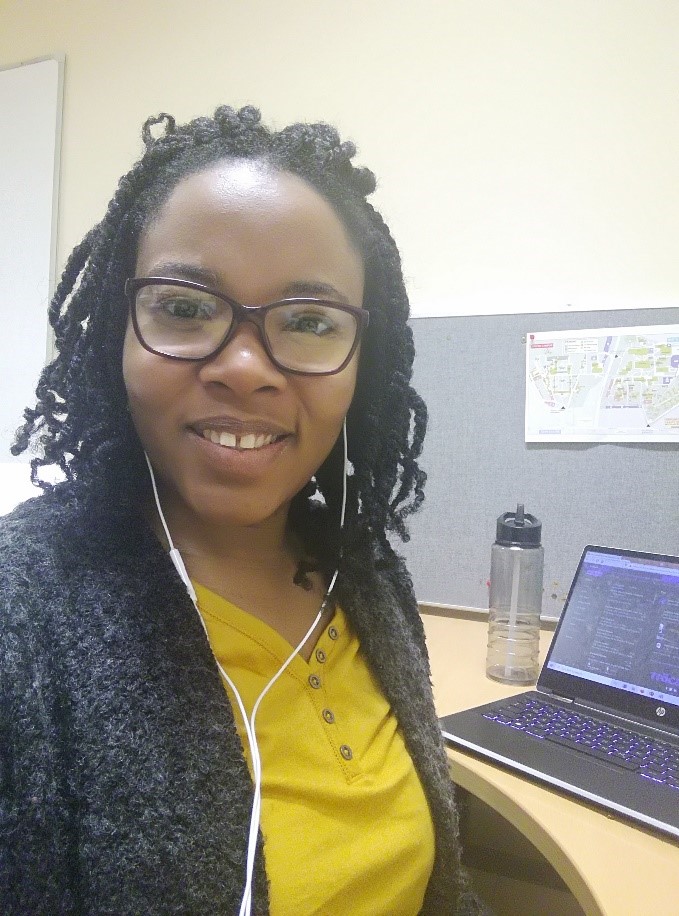 My name is Noémie. I am a student in International Social Sciences at Friedensau Adventist University in Germany. From the 6th January 2020 to the 5th March 2020, I was at Trócaire head office in Maynooth, Ireland for my internship. My trip to Ireland for my internship was sponsored by Erasmus+ and my university. The process has been very smooth; the Erasmus+ office at Friedensau Adventist University assisted me throughout the whole process. The Erasmus mobility has given me free access to language classes to improve my English. I wanted to do my internship in a European professional organization. The opportunity of funding from Erasmus has helped me fulfill this goal. In addition, going in a completely new environment for my internship has been a very rich experience because I have gone through a multidimensional learning process. It has given me the opportunity to learn new ways of working, I have got some experience in a very professional environment, I have met many people and made new friends, I have got some knowledge about the Irish culture. Doing all this simultaneously and in a short period of time (2 months) was great. I am grateful for the opportunity and the support I have received from Erasmus+ and my University.
My name is Noémie. I am a student in International Social Sciences at Friedensau Adventist University in Germany. From the 6th January 2020 to the 5th March 2020, I was at Trócaire head office in Maynooth, Ireland for my internship. My trip to Ireland for my internship was sponsored by Erasmus+ and my university. The process has been very smooth; the Erasmus+ office at Friedensau Adventist University assisted me throughout the whole process. The Erasmus mobility has given me free access to language classes to improve my English. I wanted to do my internship in a European professional organization. The opportunity of funding from Erasmus has helped me fulfill this goal. In addition, going in a completely new environment for my internship has been a very rich experience because I have gone through a multidimensional learning process. It has given me the opportunity to learn new ways of working, I have got some experience in a very professional environment, I have met many people and made new friends, I have got some knowledge about the Irish culture. Doing all this simultaneously and in a short period of time (2 months) was great. I am grateful for the opportunity and the support I have received from Erasmus+ and my University.
 International Institute for Human Rights, Environment and Development (INHURED), Nepal.
International Institute for Human Rights, Environment and Development (INHURED), Nepal.
From the 1st of March to the 15th of May, 2023, I had the pleasure of interning with the International Institute for Human Rights, Environment and Development (INHURED) in Nepal.
During my time with INHURED, I was involved in the commencement of two projects, along with one major task assigned to me. These two projects were mainly to do with advocacy and human rights. The first project was a project called Human Rights Lifeline. This project was aimed at aiding people who have had their human rights violated. This project is important for the most vulnerable in Nepali society, such as refugees who are not being listened to. The other project was a legal review of the refugee laws in Nepal in the hope they could be changed. I was involved in consultation meetings with different people who have the power to change these laws, including members of parliament. Nepal lacks a national refugee law and is not a party to the Refugee Convention 1951; it is under no obligation to follow procedures stipulated by the international instrument concerning refugees. As a result of this, refugees have a hard time in Nepal. Even lately, you see that a Bhutanese refugee scam occurred in Nepal. In this scam, Bhutanese refugees hoping to go to the U.S. were scammed by high-ranking politicians. This event goes to show how important these two projects are.
The other task I was given was to fundraise money for a group of refugees who came from Myanmar. These refugees resided in Nepal since 2012, with the government of Nepal deeming them as 'illegal immigrants'. This status means they have no right to work or travel, along with many other constraints. These legal limitations do not allow the Rohingya community to fend for themselves. Rohingya families at the Sunakoti camp in Kathmandu currently require support. The funds raised went towards the raw materials (particularly tin sheets) needed to build makeshift homes. The bamboo had already been purchased and erected for this build, but tin sheets needed to be purchased to finish the homes. My original goal was 500 euros, but I achieved more than 700 thanks to all the donations I received from donors on Gofundme. This money did so much for the refugees, and INHURED got the tin sheets and some food for the camp.
This internship made me more aware of all that I have learned in ISS and how important the topics we learned in class are. Coming from Ireland, I had not seen many of these drastic conditions I witnessed during my time in Nepal. I always had to ask my colleagues questions when I saw something I would perceive as bizarre. This internship gave me a better understanding of what non-government organisations do. They only get the basic funds for the different projects they complete from donors. NGOs like INHURED seem to give hope to those who rely on them. I could even see it in the refugee camp I visited. The camp is in a semi-rural area that is very isolated, and when a person is seen coming to the camp, it gives refugees some optimism.
My organisation was very easygoing and trusted me to do the tasks I was given each day. However, what made my internship exceptional was the relationship and caring attitude this organisation had for me. This is the first time I have experienced something like this in a job. I am grateful that my colleagues and I became a family and cared for each other. I enjoyed working with this organisation and was very sad to leave everybody, and it took me a while to get used to living back in Europe.

The whole INHURED team and previous employees on an overnight trip

Me and My colleagues at a para-Legal Orientation Program for Tibetan Refugees

Collecting tin sheets
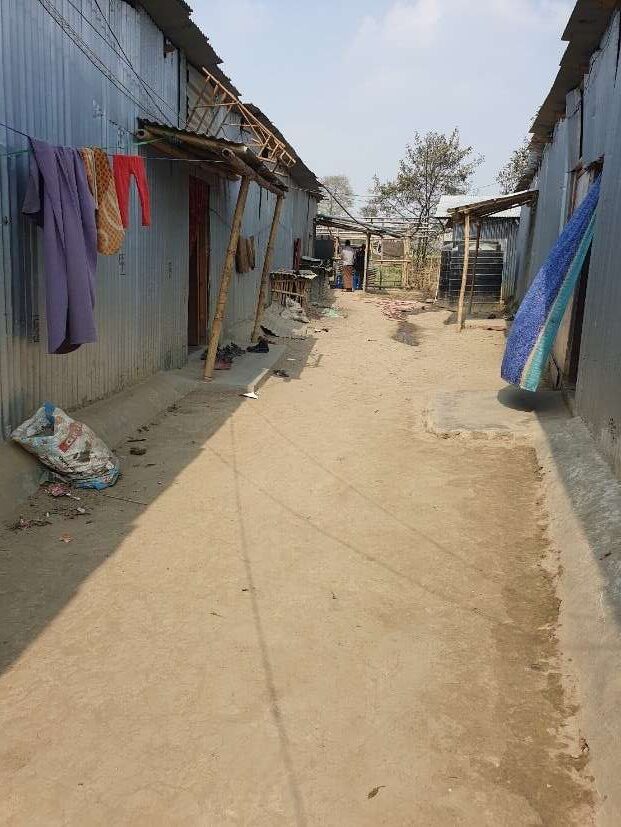
Rohingya Refugee camp
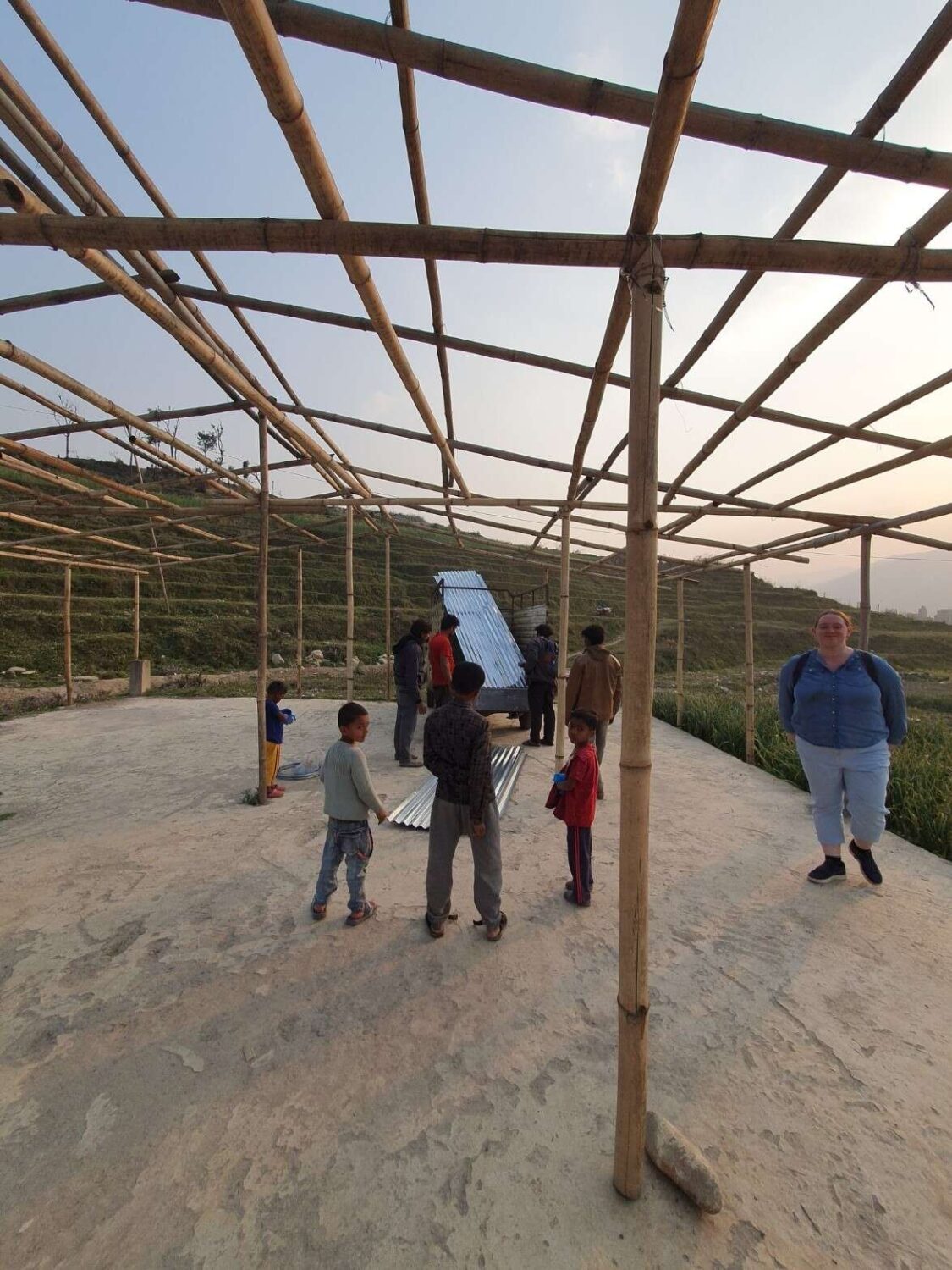
Dropping the tin sheets off at the Refugee camp

Legal review Meeting INHURED had

Me and my fellow colleagues at the legal review meetings for people in the human rights sector
Staff experience reports:
 Lecturer plans Erasmus project with Cernica
Lecturer plans Erasmus project with Cernica
From July, 19 to 22, 2022, Dr. Friedegard Föltz (centre), lecturer at the School of Social Science at the FAU, was a guest at the Universitatae Adventus in Cernica, Romania, to get to know the partner university and the staff, to find out about the structures of the pedagogical department and to plan a joint project.
An innovation of the Erasmus programme generation 2021–2027 is the so-called Blended Intensive Programmes (BIP). This is intended to promote new learning and teaching settings and make use of the opportunities for online cooperation. BIPs aim to develop short, intensive and joint curricula and activities. Students and university staff thus have the opportunity to participate in a short physical group mobility combined with a virtual phase. For the academic year 2022/2023, such a curriculum is now being developed in the field of social work, which enables students to work on three credits and also to get to know the history and cultural traditions of the country as well as the academic structures of the university through a local visit.
In addition, there was a cultural framework programme that brought the country and its people closer in an impressive way. Bucharest's huge parliament building, the old town centre, the churches and monasteries in the city as well as an open-air museum village gave incomparable impressions of the country's eventful history and culture.
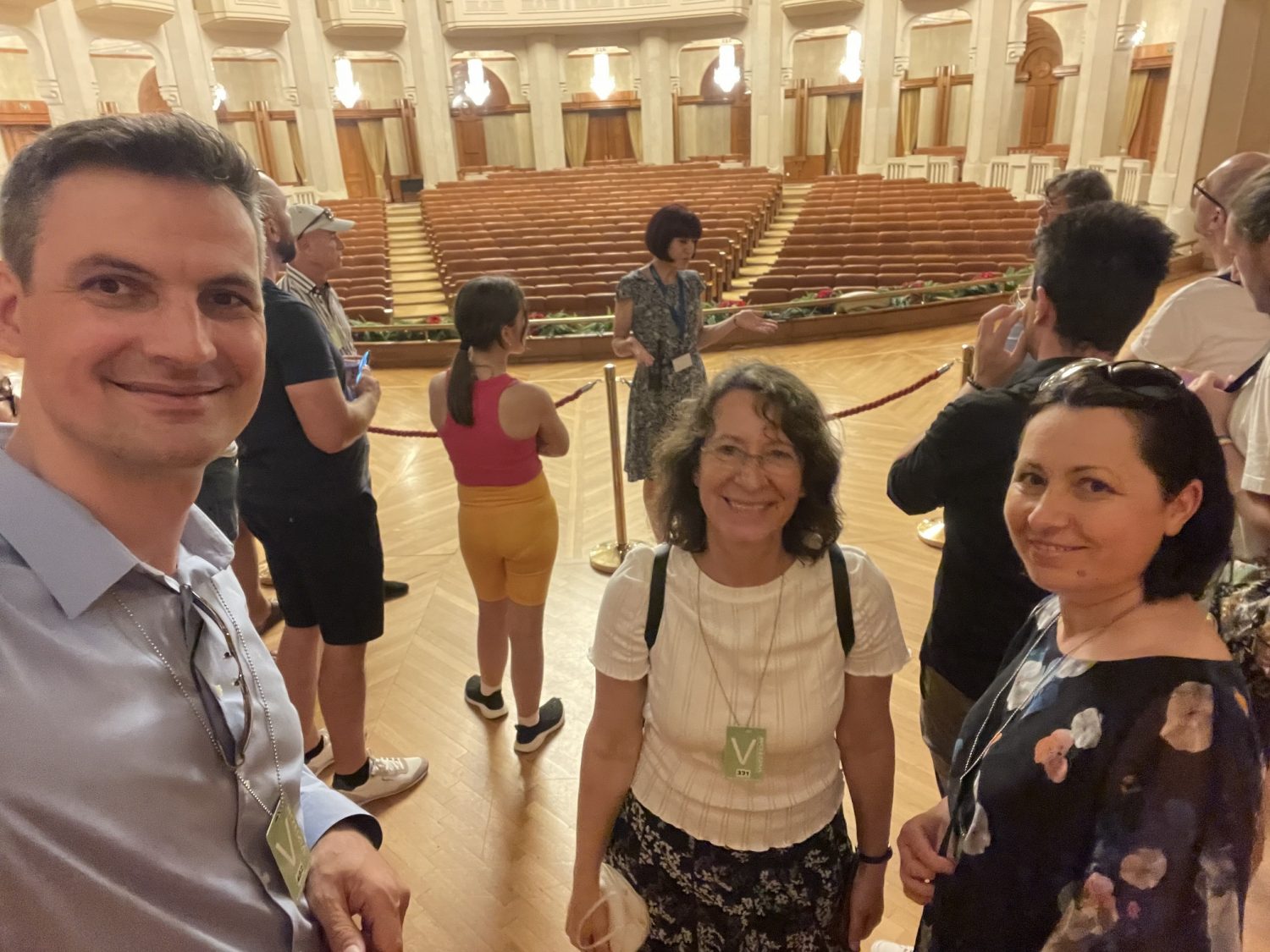
 Corona Time
Corona Time
The picture shows my view at London Stansted Airport at 2.30 a.m., which I had posted on Instagram. "Too good to be true" was meant rather ironically!
The Corona crisis affected my internship drastically and, most importantly, very quickly. As early as January, people were kept up to date with the outbreak in the media, but everything seemed very distant for everyone. Through my internship at a research institution where many biologists work, the topic was discussed almost day after day, but no one expected everything to change drastically within 4 weeks. The weekend before I left, I had a visit from friends from Germany and we travelled to London. The issue was coming to a head more and more, which is why I thought the hygiene measures were already very important. My friends were still very relaxed at that time and I had the feeling that I was already panicking. But also in my environment at the Institute many concerns were expressed, due to the lack of capacity of the health system in England and Boris Johnson's "herd immunity" goal. Due to the London trip, I had decided to stay at home for a week out of safety. I had travelled a lot on public transport and had stayed in a 9-bed room in the hostel. On Tuesday, I had phoned Mrs. Wittkamp as I was overwhelmed with the increasingly frightening situation. However, I decided to stay in England. The following day, the Research Institute received an email from the Vice-Chancellor of the University asking all international students to return to their respective home countries as soon as possible. I was completely overwhelmed, as I was actually happy about my decision a day before. I was still in contact with my group leader, my supervisor and the German embassy in England and they all said to fly home as soon as possible. A day later, a cheap flight was available and I booked it. Now, sadly, I have been back in Germany for 12 days, but I am still convinced that I made the right decision to leave the country again.
Name: Jolina Marx
Course of study: Master of Biology
Country of destination: Great Britain
Name of placement institution: Sainsbury Laboratory University of Cambridge
Current status: Early termination (?)
 Staff in Irland
Staff in Irland
From March 1st to 6th, just in time before a different situation arose because of the COVID-19 spread, three colleagues* of the Department of Christian Social Work and heads of the courses M.A. International Social Sciences and B.A. Social Work could carry out a staff mobility phase at Maynooth University in Ireland.
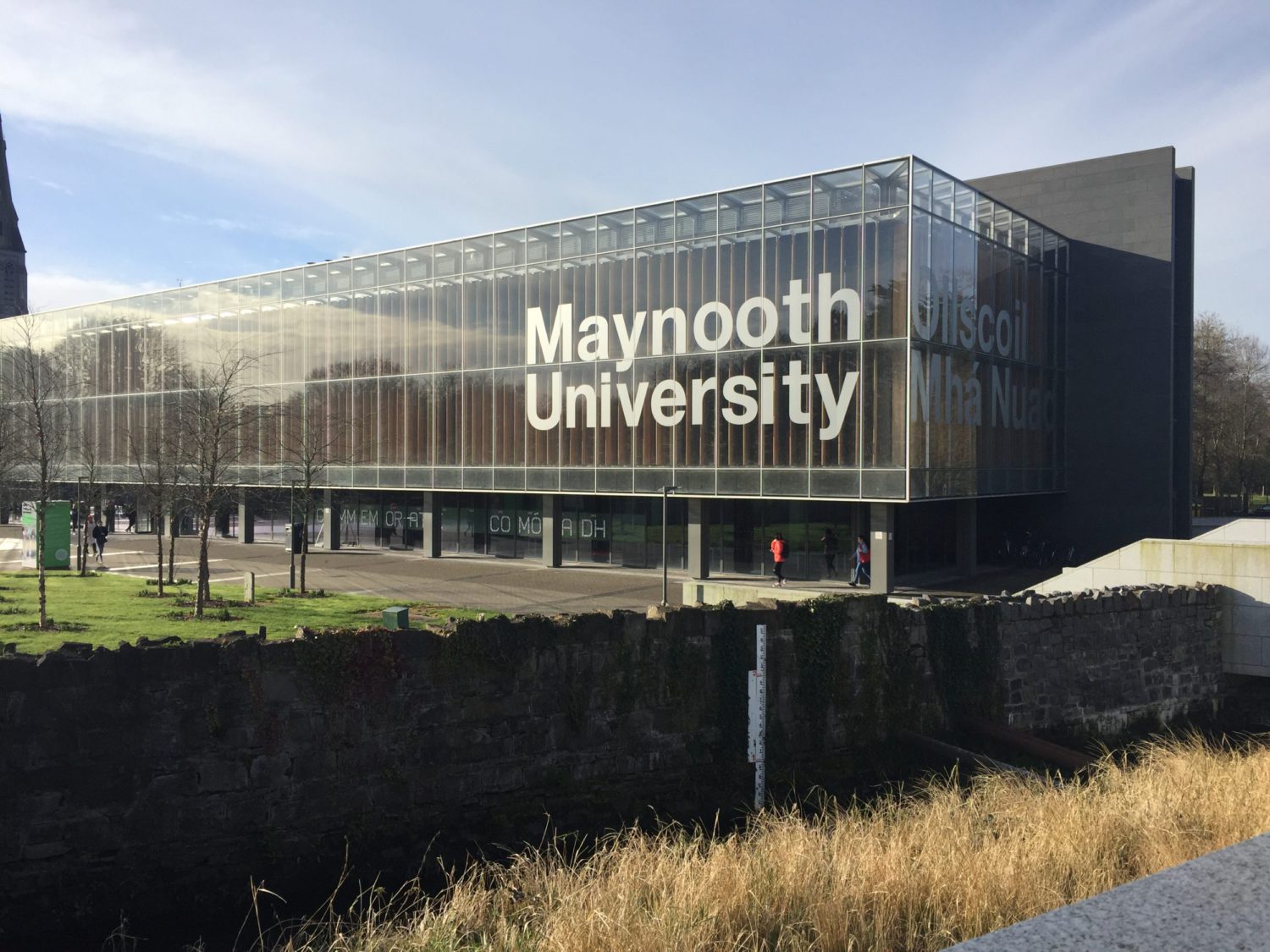 The aim was to get to know the internationalisation strategies of this university and the specific framework of the courses in the Department of International Development and the B.A. Social Work, to exchange ideas with colleagues, to see if and how possibilities for cooperation can be considered, to attend an e-learning workshop and last but not least to immerse in the English language and to experience Ireland and its culture.
The aim was to get to know the internationalisation strategies of this university and the specific framework of the courses in the Department of International Development and the B.A. Social Work, to exchange ideas with colleagues, to see if and how possibilities for cooperation can be considered, to attend an e-learning workshop and last but not least to immerse in the English language and to experience Ireland and its culture.
So the week was packed with activities and impressions. We were warmly welcomed and there was a busy schedule which, in addition to the workshop, included various meetings with lecturers of different functions and responsibilities. The relationships and the exchange could be further deepened in the evening during a pub visit.
The workshop on e-learning showed us once again the relevance of the further development of digitalisation in higher education and motivated us to invest more attention and activities in this area. This necessity arose immediately after our return due to the emerging situation caused by COVID-19. This workshop was an ideal template for our current efforts and challenges to maintain teaching under these circumstances.
We have gained a better understanding of the specific framework of these courses at Maynooth University and will continue to explore the possibilities for collaboration in terms of curricula, student exchange opportunities, summer schools or internships. A joint workshop on “Teaching Development Studies in the Global North” is planned for this year in Friedensau. We look forward to welcoming our colleagues from Maynooth to Friedensau.
 Sweden
Sweden
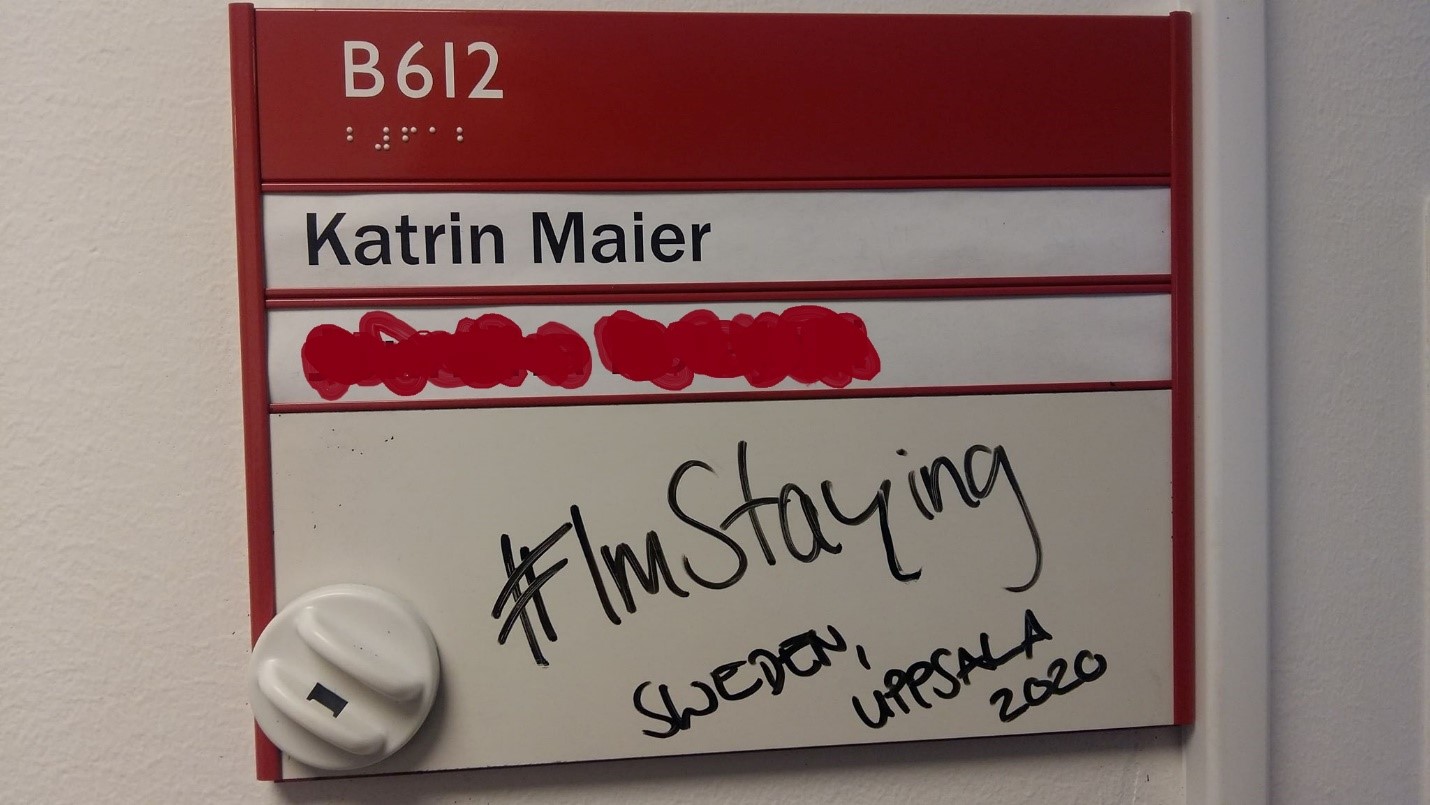 “Experiencing a different handling of the crisis strengthens my motivation to continue my internship and makes me see some creative approaches to keep public life running. Sweden is following an unique path showing great trust and hope in its people while keeping frustration low and sparking a multifaceted debate. Time will teach us more and hopefully have some lasting lessons for us all. Stay SAFE and don´t stop CARING.”
“Experiencing a different handling of the crisis strengthens my motivation to continue my internship and makes me see some creative approaches to keep public life running. Sweden is following an unique path showing great trust and hope in its people while keeping frustration low and sparking a multifaceted debate. Time will teach us more and hopefully have some lasting lessons for us all. Stay SAFE and don´t stop CARING.”
Kathrin Maier
Home University: Otto-von-Guericke University, Magdeburg
Target country: Sweden
Host Institution: Uppsala University, Department of Peace and Conflict Research
Current status: Work in the Office and from “home“
Time: 2020-02-15 - 2020-05-15
Erasmus Office
Friedensau Adventist University
Otto-Lüpke-Haus, Room 306 A/B
An der Ihle 5 A
D-39291 Möckern-Friedensau
E-Mail:
Contact
Dr. phil. Friedegard Föltz
P +49 (0) 3921/ 916 189
F +49 (0) 3921/ 916 201
E-Mail:
Office of Academic and Students Affairs
Jochen Streit
E-Mail:

ERASMUS-Code: D MAGDEBU05
ECHE: 272694-EPP-1-2019-1-DE-EPPKA1-ECHE
ERASMUS+ Charta 2014-2020
ERASMUS+ Charta 2021-2027
ERASMUS+ Policy Statement
